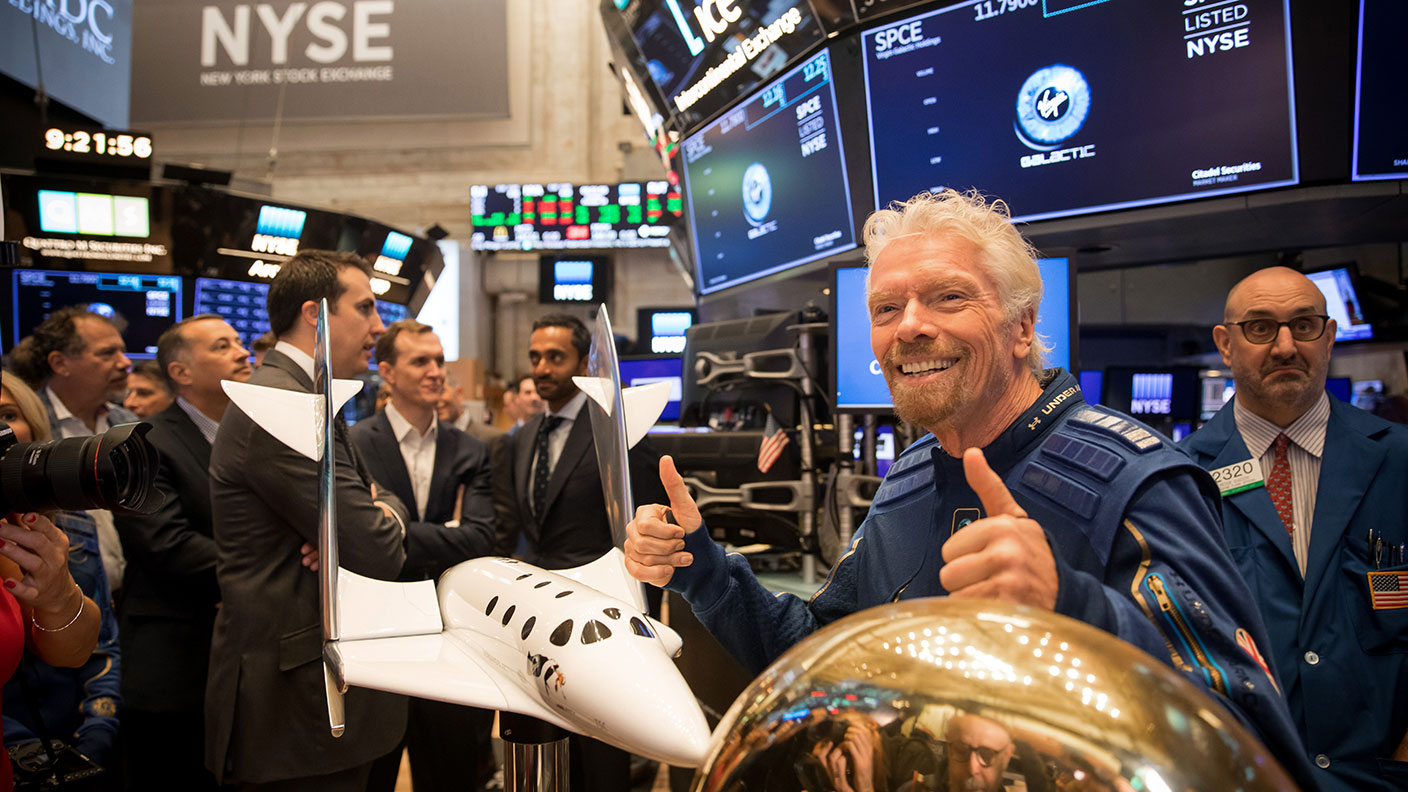Get the latest financial news, insights and expert analysis from our award-winning MoneyWeek team, to help you understand what really matters when it comes to your finances.
You are now subscribed
Your newsletter sign-up was successful
Want to add more newsletters?

Twice daily
MoneyWeek
Get the latest financial news, insights and expert analysis from our award-winning MoneyWeek team, to help you understand what really matters when it comes to your finances.

Four times a week
Look After My Bills
Sign up to our free money-saving newsletter, filled with the latest news and expert advice to help you find the best tips and deals for managing your bills. Start saving today!
Here's why the space industry is great - the stratosphere is the ultimate barrier to entry. Getting to space takes decades of engineering, billions of dollars and strong client relationships. The sector is out of bounds to all but a handful of the most advanced aerospace players. Private rocket builders have put in years of R&D and tough rocket science, and now they're reaping the rewards. They've won the trust of NASA and the US Department of Defense and have launched hundreds of satellites for private customers.
And they're going to be needed. The Obama administration has decided that the economics of space exploration is broken, not the science. Their plan: get out of the low earth orbit business by retiring the space shuttle programme, and rely on private industry to build the technology to ferry people and cargo into space.
That leaves NASA free to focus on the frontier, developing advanced technology for the most ambitious space flights. And it's an opportunity for daring high tech rocket companies to fill the space shuttle's shoes.
MoneyWeek
Subscribe to MoneyWeek today and get your first six magazine issues absolutely FREE

Sign up to Money Morning
Don't miss the latest investment and personal finances news, market analysis, plus money-saving tips with our free twice-daily newsletter
Don't miss the latest investment and personal finances news, market analysis, plus money-saving tips with our free twice-daily newsletter
Fighting for a piece of a $289bn industry
It's already a massive industry. The Space Foundation estimates that the space economy grew by 12.2% last year, to $289bn. And that number is up 41% since 2007, driven mainly by commercial companies and a 22% jump in private space infrastructure last year.
Private space companies are looking to build safe, reliable rockets to transport people and cargo at a fraction of their previous cost. Companies such as Orbital Sciences are targeting a $20m cost per astronaut on their next generation of manned rockets - compared to the $50m paid currently to the Russian government for a trip with their Soyuz rockets.
So far the private rocketeers have won multi-billion dollar contracts from NASA to ferry cargo to space. And manned space flight is their next goal.
Private rockets are also profiting from a global satellite boom. The insatiable appetite for data is fuelling demand for new satellites so that now they crowd the sky. The satellite launch industry's revenues bear this out they grew by 10% last year. Satellite manufacturing revenues also grew by 9%. And the market for geostationary satellites which hang in a high stationary orbit above the equator - is set to grow by 10-20% this year.
Forecast international doesn't see things changing any time soon it values the commercial satellite market at $52.7bn in the next ten years. Such a tempting market has attracted all sorts of space industry players, from niche start-ups such as Virgin Galactic to Boeing, SpaceX and Orbital Sciences.
Get the latest financial news, insights and expert analysis from our award-winning MoneyWeek team, to help you understand what really matters when it comes to your finances.
Paul gained a degree in electrical engineering and went on to qualify as a chartered management accountant. He has extensive corporate finance and investment experience and is a member of the Securities Institute.
Over the past 16 years Paul has held top-level financial management and M&A roles for blue-chip companies such as O2, GKN and Unilever. He is now director of his own capital investment and consultancy firm, PMH Capital Limited.
Paul is an expert at analysing companies in new, fast-growing markets, and is an extremely shrewd stock-picker.
-
 Should you buy an active ETF?
Should you buy an active ETF?ETFs are often mischaracterised as passive products, but they can be a convenient way to add active management to your portfolio
-
 Power up your pension before 5 April – easy ways to save before the tax year end
Power up your pension before 5 April – easy ways to save before the tax year endWith the end of the tax year looming, pension savers currently have a window to review and maximise what’s going into their retirement funds – we look at how
-
 Invest in space: the final frontier for investors
Invest in space: the final frontier for investorsCover Story Matthew Partridge takes a look at how to invest in space, and explores the top stocks to buy to build exposure to this rapidly expanding sector.
-
Three space stocks for adventurous investors
Tips Micah Walter-Range, index creator for the world’s first space ETF, selects three of his favourite space stocks to buy now.
-
 The space race: exciting, but not necessarily profitable
The space race: exciting, but not necessarily profitableOpinion The new space race will spawn a host of new companies wanting to cash in. But investors should tread very carefully, says Merryn Somerset Webb: most will fail.
-
 A new investment trust to profit from the space race
A new investment trust to profit from the space raceTips There is now an investment trust focusing on the space sector. It looks intriguing, says David Stevenson – but highly risky.
-
 Reach for the stars: how to profit from a new era of space exploration
Reach for the stars: how to profit from a new era of space explorationCover Story It has been almost 50 years since someone walked on the Moon and Mars seemed just a short hop away. But now the final frontier is back in fashion, spelling opportunity in a wide range of sectors, says Ben Judge.
-
Space exploration is booming – now’s the time to back it
Opinion Will space exploration be the next boom industry? Perhaps, says Matthew Lynn. And now is the time to buy in.
-
 Visionary investors should place their bets in the space race
Visionary investors should place their bets in the space raceCover Story It’s not just eccentric and ultra-rich tycoons heading into space. From asteroid mining to space hotels, promising profit opportunities now lie off-planet. Set your sights on the stars, says Stephen Connolly.
-
Is there life on Mars? Maybe not – but there’s money in space
Features With news of running water on Mars, people are excited about space exploration again. That's good for the global space industry – and for those who invest in it.